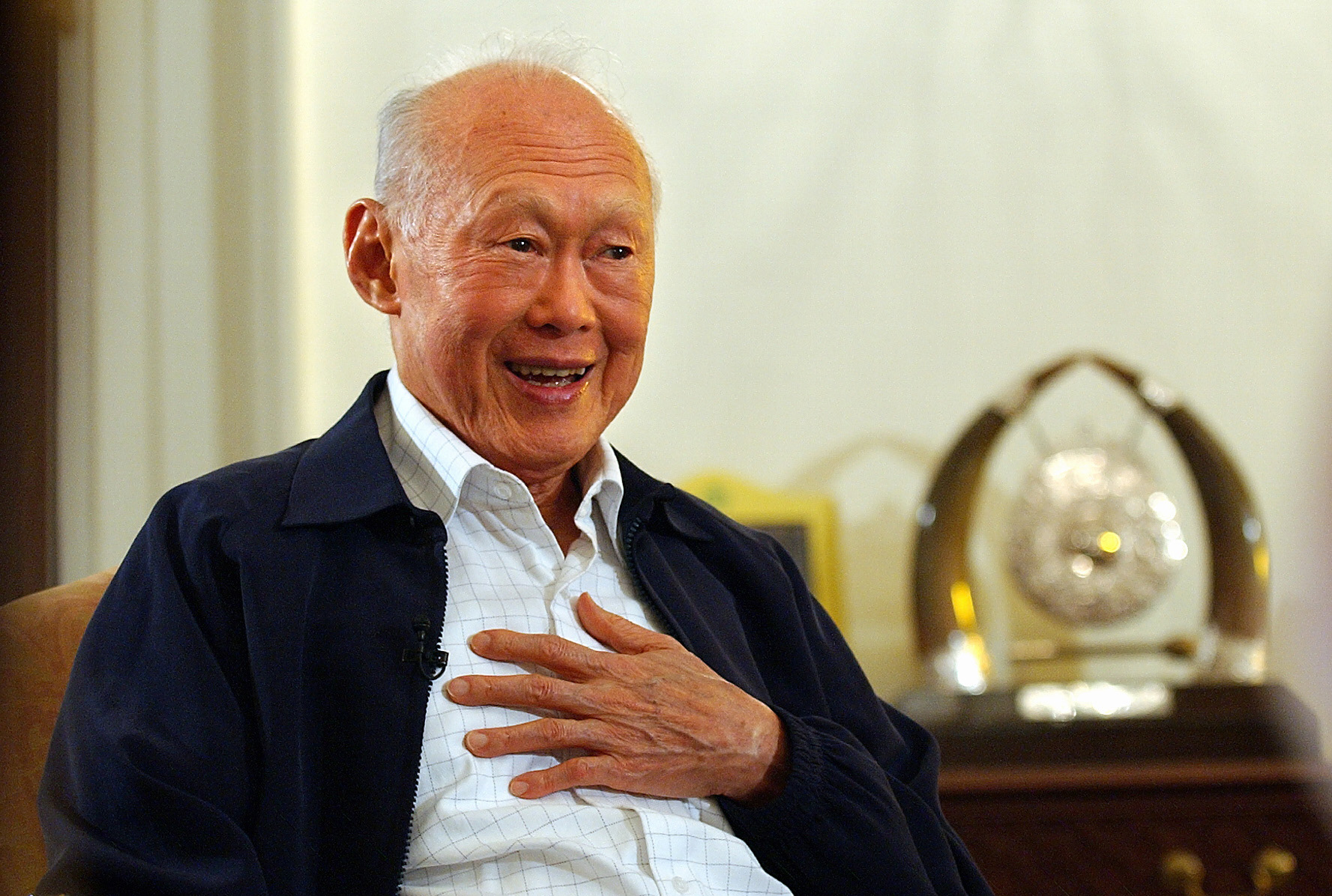Lee Kuan Yew << lee kwahn yoo >> (1923-2015) was prime minister of Singapore from 1959 until 1990. Under Lee’s rule, Singapore became one of the most prosperous countries in Asia. His government exercised strong control over the nation’s economy and political system. In 1990, Lee resigned as prime minister and was succeeded by Goh Chok Tong. But Lee remained an important political figure. He served as head of his political party until 1992 and as senior minister in Goh’s cabinet until 2004. When his son, Lee Hsien Loong, became prime minister in 2004, Lee Kuan Yew became an adviser in his son’s cabinet. Lee Kuan Yew announced his retirement from politics in May 2011.

Lee Kuan Yew was born on Sept. 16, 1923, in Singapore. He attended Raffles College in Singapore, and, in 1949, graduated from Cambridge University in England with a law degree. Lee returned to Singapore in 1951 and became a labor lawyer. He helped found the People’s Action Party, Singapore’s dominant political party, in 1954. Lee became prime minister in 1959, when Singapore gained self-government for its internal affairs. He remained as prime minister from 1963 to 1965, while Singapore was part of the Federation of Malaysia. Lee continued in that position after Singapore became an independent country in 1965. Lee died on March 23, 2015.
